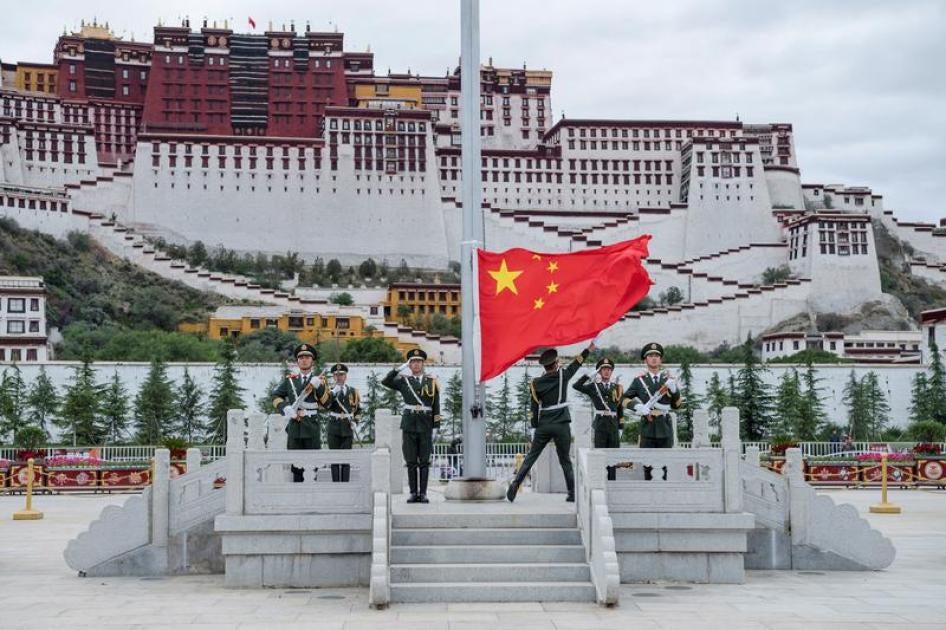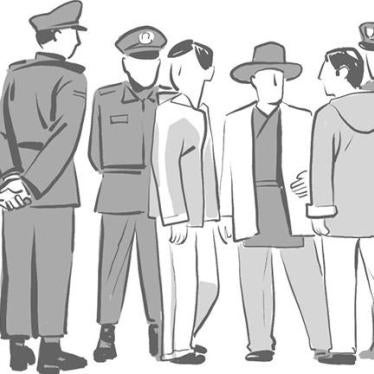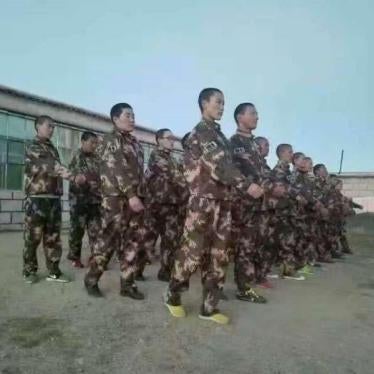Addressing its abusive past has never been a strength for the Chinese Communist Party, particularly in hotspots like Tibet. If anything, the party has become increasingly strident in defending its record in that region. In 2009, for instance, authorities decided to make March 28, the anniversary of the introduction of “democratic reform” after the flight of the Dalai Lama in 1959, an annual holiday to celebrate “serf liberation.” Perhaps it’s this mindset that explains a recent article noting the June death of Tibet’s former political commissar, Ren Rong.
A lifelong soldier, veteran of the 1934-35 Long March and of the anti-Japanese, and Korean wars, Rong became political commissar of the Tibet Military District in 1967. Under Chairman Mao Zedong, he ascended during the Cultural Revolution, one of the bloodiest periods of Communist rule, as a broker between the People’s Liberation Army and rival political factions. He would therefore have helped oversee the suppression of the 1969 uprisings across the Tibet Autonomous Region and the imposition of martial law in 1970. Over the course of that campaign, authorities publicly executed hundreds of people, while many thousands were imprisoned or publicly humiliated with “counter-revolutionary hats.” He became the region’s party secretary in 1971.
Yet Rong’s and others’ rule was so heavy-handed it prompted a rare public apology by the party’s general secretary, Hu Yaobang, during a 1980 visit to the Tibetan capital, Lhasa. Hu – thought of as a reformer – promised change, especially the withdrawal of more than half the Chinese Party members and government staff, and removed Rong from office. Yet the party never acknowledged Hu’s initiative, which was later emphatically reversed – to the extent that now even Rong appears to be back in favor.
His eulogy, written in the name of Ragdi, one of his protégés, lauds his, “sweat, determination and…glorious deeds.” It concludes with no apparent irony that the, “masses of all nationalities in Tibet can never forget him.” The decision to honor a strongman associated with one of the darkest chapters of Maoist rule suggests an ever-bolder approach by the Communist Party under President Xi Jinping to whitewash history, the history that fuels unrest in Tibet to this day.
|
Dispatches
Nothing Rong in Tibet
China’s Eulogy Whitewashes Past Oppression
Your tax deductible gift can help stop human rights violations and save lives around the world.
Region / Country
Most Viewed
-
November 25, 2019
A Dirty Investment

-
January 16, 2026
Iran: Growing Evidence of Countrywide Massacres

-
March 5, 2026
Israeli Military Calls for Evacuating Southern Lebanon
-
September 28, 2025
China: Draft ‘Ethnic Unity’ Law Tightens Ideological Control

-
July 21, 2025
“You Feel Like Your Life Is Over”





